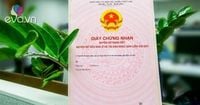In Vietnam, the complexities of land use regulations are coming to the forefront as the 2024 Land Law introduces new provisions for converting agricultural land to residential land. This law, which aims to streamline land use rights and enhance agricultural productivity, has raised questions among landowners about their rights and obligations.
One such landowner, Mr. Lam, has found himself navigating these new regulations. He inquired whether his land qualifies for conversion from agricultural to residential use, given that it aligns with the district-level land use plan for rural residential land. However, he noted that there is no specific construction plan for his area. According to Mr. Lam, "My land fits the district-level land use plan, but the lack of a specific construction plan has me wondering if I can convert it."
The 2024 Land Law, particularly Article 116, provides clarity on this issue. It states that the basis for allowing the conversion of agricultural land in residential areas is the district-level land use plan, general plan, or sub-area plan approved by competent authorities. This means that if Mr. Lam's land is included in the approved district-level plan, he may be eligible for conversion.
As the end of April approaches, the Phuc Tho district in Hanoi is preparing to auction off 10.2 hectares of public agricultural land, attracting interest from large agricultural production organizations. This auction reflects the government's ongoing efforts to optimize land use and support agricultural development.
In addition to land conversion, the government has proposed extending the agricultural land use tax exemption policy for another five years, until the end of 2030. This initiative aims to support the agricultural sector, ensuring food security and stabilizing the socio-economic landscape amid international integration.
Moreover, the 2024 Land Law also addresses the issue of undocumented land. Under Article 138, several types of land without documentation can be granted land use right certificates, commonly known as sổ đỏ, if they meet specific conditions. These conditions include land that has been used before December 18, 1980, and land used for residential purposes in economically disadvantaged regions.
For individuals seeking to obtain a sổ đỏ for undocumented land, there are several fees involved. The registration fee is calculated based on the price of land per square meter and the total area. Specifically, the fee is determined by the formula: (Price of 1m² of land x Area) x 0.5%. Additionally, there are appraisal fees, certificate issuance fees, and potential land use fees, depending on the circumstances.
Households and individuals may be exempt from land use fees if they have used the land without violating land laws and have no disputes. For example, those who used land before December 18, 1980, or from December 18, 1980, to before October 15, 1993, can qualify for this exemption.
According to the new regulations, individuals applying for a sổ đỏ for undocumented land must prepare a variety of documents. These include an application form, proof of financial obligations related to the land, and any documents relevant to exemptions. Depending on the situation, additional documentation may be required, such as proof of inheritance or evidence of land transactions.
The introduction of the 2024 Land Law marks a significant shift in Vietnam's approach to land management. It aims to provide clearer guidelines for land use rights while addressing the needs of those who have historically faced challenges in securing land documentation. The government’s efforts to facilitate agricultural land conversion and streamline the process for obtaining land use rights are seen as crucial steps towards enhancing agricultural productivity and ensuring social stability.
As Mr. Lam navigates these new regulations, he reflects on the broader implications for landowners across Vietnam. "These new laws could really change the game for many of us who have struggled with land use rights for years," he said. The hope is that these reforms will lead to a more equitable and efficient land use system, benefiting both individual landowners and the agricultural sector as a whole.
In conclusion, as Vietnam continues to develop its agricultural sector and optimize land use, the 2024 Land Law represents a pivotal moment in the country’s land management policies. With ongoing support for agricultural development and clearer pathways for land conversion, the government is positioning itself to meet the challenges of modern agriculture while ensuring the rights of landowners are respected.




